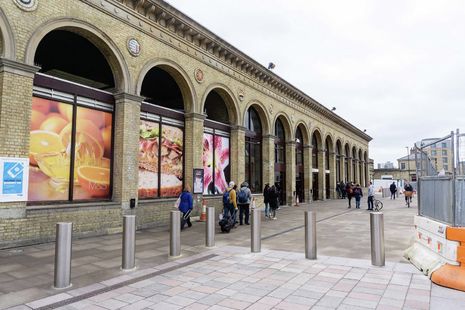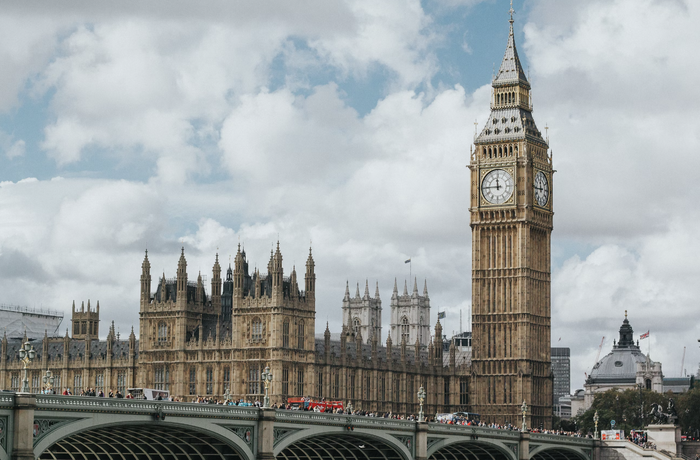Returning from intermission can be joyful
Returning to Cambridge after intermission can be hard, but your approach to it can make all the difference

“We didn’t think you’d last a week!” The college nurse, with her disarming lack of tact, revealed at the end of my first term back after intermission something that had scarcely previously been concealed – the omens for my return were not propitious. My college Chaplain, a man of dispositional Anglican caution, affirmed that he too, contrary to his vocation, had been of little faith.
Eight months earlier, I had left Cambridge wounded and angry. The university had vomited me out, and the months intended for respite from academic bureaucracy had degenerated into a quasi-judicial procedure of trying to demonstrate my fitness to return with scant shreds of evidence of NHS support. I had skulked at home like Napoleon on Elba, scheming his way out of exile. Eventually, my college relented, and I returned that autumn like the petite tyrant – with everyone expecting me to face my Waterloo.
“Eight months earlier, I had left Cambridge wounded and angry”
Historical allusions aside, the truth about returning from intermission is that it can be really, really hard, in ways that returnees aren’t prepared for. That doesn’t mean it has to be a disaster. Two years ago, I wouldn’t have believed that, two years later, I’d feel so enthusiastic about the beginning of a new year. Returnees need not despair at the difficulties that await them; all are surmountable. The task is to keep faith, contrary to any insidious pessimism, that you will fall in love with Cambridge again.
The first fear that faces the returnee is the fate of their friendships. Intensity distinguishes the relationships you make in Cambridge. Someone you’ve known for less than a term can feel like a lifelong friend. Understandably, the distance enforced by intermission stirs up a host of anxieties – will they have changed? Will they even want me around? If you’re like me, you want to cling close to the people you love – but in situations of stress, you have to release your grip lest it suffocates.
See each continuing friendship as a blessing, while viewing discontinued ones with charity. Some will leave; let them. Some will come back slowly; give them time. Some friendships will seem finished, and then they’ll surprise you by reaching out – embrace them as you would an unexpected gift. Recently, I rekindled a friendship with someone I hadn’t spoken to since before my intermission and found all the old affections rushed back. Such things cannot be forced.
Belonging to a new year cohort is full of difficulties – I remember feeling so incongruous in Fresher settings, and so tired of the sentence “Well, I’m IN first year, but REALLY I’m a second year…” All of my essays for that year were titled ‘Year 1.5’, an expression of my unease with expressing belonging to either grouping. Now, straddling two year groups feels like a blessing, a chance to double the friendships.
Here, you just have to trust time’s healing miracle. When I first returned, I was eager for everything to go back to how it had been. The words of Shakespeare’s Richard II echoed in my ears: “I wasted time; now time doth waste me!” But the Bard only provides half the picture – time rots, but it also heals. Time’s transformative capacities make themselves known in retrospect, when memory brings you into confrontation with a past self you no longer recognise, who lived entrapped in an emotional world that now feels alien. Time is your nursemaid, so trust it.
“Time is your nursemaid, so trust it.”
While waiting for this remedy, the best thing you can do is find something you love that you can do alone, preferably something that allows you to escape into the world beyond Cambridge. I always interpreted the optional nature of the Cambridge History lecture as “attendance is discouraged”, so spent much of my first year after intermission travelling to the towns and cities accessible from Cambridge by train.
If you can’t make it out of Cambridge, become a sightseer in your own city. In the Lent following my return, I toured every college Chapel, dubbing myself the ‘James Bond of ecclesiastical architecture’, sleuthing my way past Trinity porters and journeying like Odysseus to Girton. Not everyone shares my enthusiasm for liturgy, but it’s the mission that counts. Whatever your interests are, pursue them with ardour. The best part of any person is their passions; find what someone loves, and you often discover what makes that person lovable. Remember what you love.
Returning from intermission will always be difficult; many of the old frustrations will still be there, with new ones added for good measure. None of this should be ignored – Cambridge should be seen for what it is, but through the forgiving eyes of someone besotted with it. This is the real task for the returnee, to fall in love with Cambridge again – for love covers a multitude of sins.
 News / Cambridge students set up encampment calling for Israel divestment6 May 2024
News / Cambridge students set up encampment calling for Israel divestment6 May 2024 News / Cambridge postgrad re-elected as City councillor4 May 2024
News / Cambridge postgrad re-elected as City councillor4 May 2024 News / Some supervisors’ effective pay rate £3 below living wage, new report finds5 May 2024
News / Some supervisors’ effective pay rate £3 below living wage, new report finds5 May 2024 Fashion / Class and closeted identities: how do fits fit into our cultures?6 May 2024
Fashion / Class and closeted identities: how do fits fit into our cultures?6 May 2024 Features / Cambridge punters: historians, entertainers or artistes? 7 May 2024
Features / Cambridge punters: historians, entertainers or artistes? 7 May 2024






